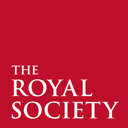 There is a man that the Royal Society has chosen to honour not once but twice: first with a Wolfson Merit Award, and second with his own volume of their flagship journal. This post is about that man.
There is a man that the Royal Society has chosen to honour not once but twice: first with a Wolfson Merit Award, and second with his own volume of their flagship journal. This post is about that man.
The man the Royal Society honoured not once but twice wrote a paper claiming that global warming sceptics believed that the moon landings were a hoax. This was despite the fact that his survey data had been collected at stridently anti-sceptic blogs. Worse, his data showed precisely the opposite of what he claimed (and leaving aside that only ten of his 1145 respondents believed in the moon hoax anyway). Yes really - the man the Royal Society honoured not once but twice wrote a paper the title of which was completely, utterly and obviously refuted by his own data. This is a man who lied about the participants in his survey, the people who had given their time for scientific research.
Similarly, the man the Royal Society honoured not once but twice reported that endorsement of free markets predicts the rejection of other established scientific findings, such as the facts that HIV causes AIDS and that smoking causes lung cancer. This was despite the fact that his survey data showed that free market endorsers overwhelmingly supported both of these propositions.
The man the Royal Society honoured not once but twice performed his surveys under university ethical clearance he had obtained for a project about public understanding of statistical trends. After informing his university's ethics department of a "slight" change to the plans he proceeded with two completely different projects. His original ethical clearance was for anonymised surveys, but in one of the subsequent projects he purported to have identified "psychopathological characteristics" in named individuals. This despite the fact that this was a direct breach of relevant research policies. This is the man that the Royal Society has honoured not once but twice.
The man the Royal Society honoured not once but twice declared in the SI to his paper that a substantial body of global warming sceptics would have had access to the survey. This claim was based on analysis of the traffic at a website that he said was one of those that had hosted it. Subsequent analysis showed that the survey had never appeared there (a point confirmed here).
The man the Royal Society honoured not once but twice wrote another paper that claimed that those who reject scientific propositions "often" support conspiracy theories too. The correlation calculation with which he supported this claim of "often" was based on just 2 of his 1100 respondents. In the earlier paper the number had been 2 from 1145. The man the Royal Society honoured with his own volume of their flagship journal made claims based on sample sizes of two.
The man the Royal Society honoured not once but twice collected survey data from minors, without having ethical clearance to do so.
This then is the man the Royal Society honoured not once but twice.
Which leads us inexorably to this question. Does the Royal Society care nothing for its own reputation, or indeed for the reputation of science?